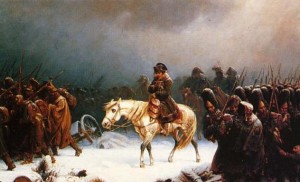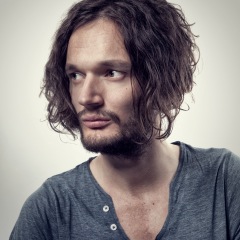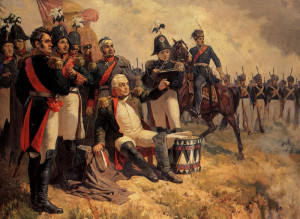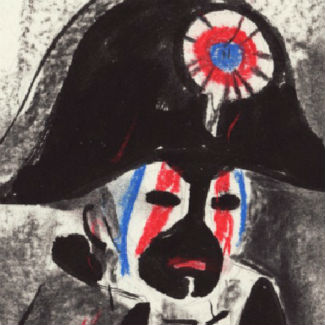Setting into motion changes that reshaped Europe, and shifted the balance of not only political but military and trading power, the 200th anniversary of Napoleon’s fateful 1812 invasion of Russia seems to have passed the majority by without much notice.
Immortalised in Tolstoy’s peruse tome War And Peace fifty-years later, the most tragic and bloody chapter of the entire Napoleonic period has much to teach us.
An ill-fated gamble – summarily repeated by Hitler 140-years later with similar consequences – Russia would become the French armies ‘tomb’. With, arguably, one of the largest forces ever yet assembled, Napoleon’s 600,000 strong army – made-up of over twenty nationalities – crossed over the yellowed, murky waters of the Nieman into Russian controlled Lithuania during the summer of that year.
Six months later, having been harassed by constant partisan guerilla style attacks, disease, the mother of all winters and freighted by the wily Kutuzov led Russian defenders, whose refusal to fight on the French Emperors terms made any decisive victory impossible, just 26,000 hounded, desperate souls crawled back over the boarder with their lives – of these it was the “bravest of the brave”, flame-haired, Marshall Ney who was the last to cross: credited with the title of being the last Frenchman to fire a shot at the enemy.

Napoleon’s fortunes, and those of France, slowly but surely unraveled as Russia, with the combined allied partnership of Austria, Great Britain and Prussia (along with Austria, constantly kept in check by a series of heavy defeats) now fell upon their great rival without pity.
Forced to abdicate, Napoleon was exiled to Elba with a small retinue guard and some of his aides. Staggering in audacity and cunning, he escaped within a short space of time back to mainland France, buoyed by the prevailing deep-resentment of the people towards the restoration of Louis XVIII. With a herculean effort, and over just a hundred days, he swelled his original 1000-strong guard with enough men, boys and conscripts to send Louis fleeing for the hills. Taking back the laurel crown, Napoleon at first attempted peace with his former adversaries, when that failed, he once again marched to war, getting the jump on his enemies as he went on the attack crossing into, what is now, Belgium. Driving a wedge between the British and Prussian forces, he at first decisively beat one part of the Prussian army, but then completely lost his head when underestimating the stoic Wellington (equal in brilliance and tactical skill), when he faced him across the battlefield of Waterloo, days later. Only a shadow of its former glory and strength, a hastily recruited and press-ganged French army depended on superior numbers to send Wellington’s forces running, but as Sean Bean’s synonymous Sharpe character would say, “can you stand”, to which the reply was, yes! The French came up against a wall of three-shot’s a minute terror, and buckled.
Russia had been the zeitgeist, demoting France but promoting Prussia, and subsequently a united Germany decades later, to dominance on mainland Europe. The events, brought to both vivid life and philosophically challenged by Tolstoy, are indeed crucial to understanding history and human nature itself.
So vast is the scope of Tolstoy’s War And Peace, covering not only 1812 but the seven years (1805) of turmoil, negotiations and travails that led to that invasion. Mixing real life events with fiction the author proclaimed that he was, “blurring fiction with the historical to find essential truths.”
The lives, loves, fate and reflection of an age are read through the eyes of five Russian families (Bezukhovs, Bolkonskys, Rostovs, Kurgins and Drubetskoys) their fortunes changing as the threat of war grows ever nearer. Part novel, part meditative debate then, the revered book offers a myriad of musings on religion, governance, spiritualism, freedom and ideology. Tolstoy’s awe-inspiring opus is in a manner, a warning, a call for change and understanding, unheeded both in his own lifetime and by the following generations.
Rightly held aloft as one of, if not the, greatest novels ever attempted, the sheer expansive plot and multitude of nuanced interactions could only ever succeed in the original form. Not that this has dented the ambitions of the various film/TV directors, composers and playwrights who’ve tried to adapt the book to their chosen mediums.

Which brings us to Sebastian Hartmann’s innovative theatre production; commissioned by the German arts festival Ruhrfestspiele (in Recklinghausen). Staged in the anniversary year, Hartmann’s project used an especially composed score by, fellow German, electronic artist Sascha Ring, aka Apparat.
Using a minimal ensemble of orchestra parts (cello, violin) and immersive, generated synthesizers, Ring’s live band spent four weeks locked away in an abandoned building, constructing and rehearsing the essence, rather than liner narrative of the source material.
The original live performed soundtrack has since outgrown its’ initial purpose and since been reshaped for this recorded version, which Ring and his band will perform live during 2013.
Certain motifs and favorable passages have been repeated or extended for a comparative listening experience, without the aid of visual stimulation.
A plaintive, if not stirring, peregrination, this oeuvre builds slowly with the sad strains of a weeping cello and increasingly yearning sonic bed of prolonged grief bringing in the opening leitmotif on ‘44’. As the efflux of one atmospheric set piece bleeds into the next, a ‘Noise Version’ of 44 widens the electronic panorama further with a brewing storm of static rippling and saddened resonance, representing the ominous onset of war.
The mostly uninterrupted instrumental suite allows the occasional vocal cue to echo the prevailing mood of change. Pitched high, yet sagacious and roughly frail, the forlorn timbered vocals repeat a desperate cycle of, “deserted holes, deserted eyes, deserted souls, deserted lives”, on the percussive sprayed ‘Light On’, and aches poignantly beneath, ‘A Violent Sky’.
Grapeshot guitar reverberations signal meditations on death with the disturbing hive fuzz of ‘Tod’, whilst vestiges of a long gone ballroom linger dreamily on the beatific, Popol Vuh-esque – ‘Blank Page’. There are two versions of the Kreig und Frieden theme, both magical and emotive, with the ‘Pizzicato’ wondering a classically informed path of plucked harp and violin ‘underture’, whilst the stripped back take revolves around a wind-up music box, and in preparation for the preceding track, works up a timpani forebode.

‘Austerlitz’, one of Napoleon’s greatest victories, is the first momentous trial to face the characters of War And Peace. Like two battled bookends, Austerlitz in 1805 is later repeated by the most bloody hard-fought contest between the French and Russians in 1812, Borodino – 80,000 plus men lost their lives on that day.
Ring’s interpretation of that battle begins with haunted scrapping sounds and a low rumble, soon swelled by a tumultuous wave of dread and bowed mournful melody. The climax of a disastrous Danube campaign, orchestrated by the Austrians with their allies the Russians, Austerlitz was the unintentional spot for a calamitous day’s butchery; a battle that the Russian’s commander-in-chief, Kutuzov, neither petitioned for or wished to fight. Painted as the nations staunch, indolent, maverick and hero by Tolstoy (“A simple, modest and therefore truly great figure, who could not be cast in the lying mould invented by history.”) yet forever undermined and discredited by his dissenters, Kutuzov was pressured by an impatient, glory hunting, impish Tsar, Alexander I, and a camarilla of jealous, back-stabbing aides, to face Napoleon on the Austrian chosen field of play.
Language barriers, ineptitude and sheer bloody mindedness ended in tragic consequence. One of the novel’s most moody and stalwart characters, Prince Andri Bolkonsky, is there on that fateful day to bare witness to the impending disaster; assigned as aide-de-camp to the commander, he’s privy to the confusion that ultimately led to the winning Russian/Austrian forces maneuvering from their advantage point on the fabled Pratzen Plateau towards the advancing French. Strongly against Kutuzov’s wishes, Alexander pushed his commander into committing the day’s gravest error, as the French took full advantage and eventually turned the battle around, destroying the Russian/Austrian forces and claiming a legendary victory – though outnumbered, and taking to the field in a weaker position, the French lost 7- 10,000 men in comparison to allies 30,000.
All sides would eventually settle a peace of sorts, though the reputation of, certainly the Austrians, was forever damaged.
Still the ‘sly old fox of the north’ (as christened by Napoleon himself) Kutuzov at the age of 67, would once again command the Russian army in 1812, and through a series of tactical retreats, skirmishes, feints, stalemate battles and a scorched-earth policy, and with the help of winter, finally seal the French Emperors fate.
I must declare my own interest, having written a script based on the life of Kutuzov, borne from Tolstoy’s own depictions. His reputation wasn’t exactly helped by Stalin’s adoption, an attempt to rally the motherland around Kutuzov’s example. The fact that there’s so far only been one actual English language biography (The Fox Of The North, Roger Parkinson) doesn’t help the cause, especially as most books on the subject paint him in a very poor light.
But hell, this is all very tenuous, as we’re here to critique a contemporary take on these same events. Not as bombast and triumphant as Tchaikovesky’s ‘1812 Overture’, the Apparat treatment is less celebratory and instead errs on the cautionary. It doesn’t slavishly follow a plot as such, but it also doesn’t detract from the thematic core. The strained beauty and stirring reverence of this suite can be absorbed and enjoyed in complete isolation, away from the text it was inspired by and produced to represent.
Released 18th February 2013
[Rating:4]
https://soundcloud.com/muterecords/sets/apparat-krieg-und-frieden/s-GdfAL
Apparat will be playing the following dates during the year.
APPARAT PLAYS KRIEG UND FRIEDEN
10 May – Poland – Warsaw – Free Form Festival – http://www.freeformfestival.pl
11 May – Belgium – Brussels – Les Nuites Botanique – http://bit.ly/Yosnnt
13 May – UK – Brighton – All Saints Church (Brighton Festival) – http://brightonfestival.org
25 May – Spain – Barcelona – Primavera Festival – http://www.primaverasound.es/
26 May – France – Paris – Cafe De La Danse – http://www.cafedeladanse.com
27 May – France – Paris – Cafe De La Danse – http://www.cafedeladanse.com
1 June – Germany – Leipzig – Centraltheater – http://www.centraltheater-leipzig.de
2 June – Germany – Leipzig – Centraltheater – http://www.centraltheater-leipzig.de
3 June – Austria – Wien – Stadtsaal – http://stadtsaal.com/spielplan/kriegfriedenssu.html
4 June – Switzerland – Zürich – Kaufleuten – http://bit.ly/Z7WsxL
5 June – Germany – München – Volkstheate




